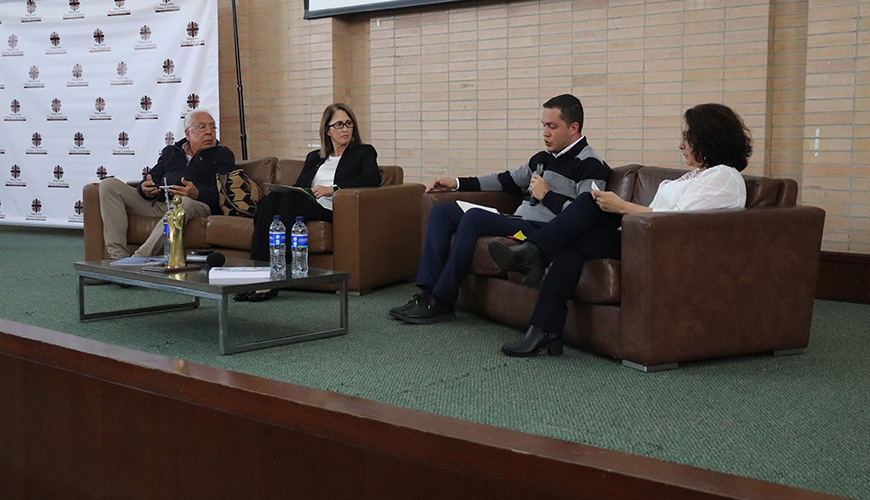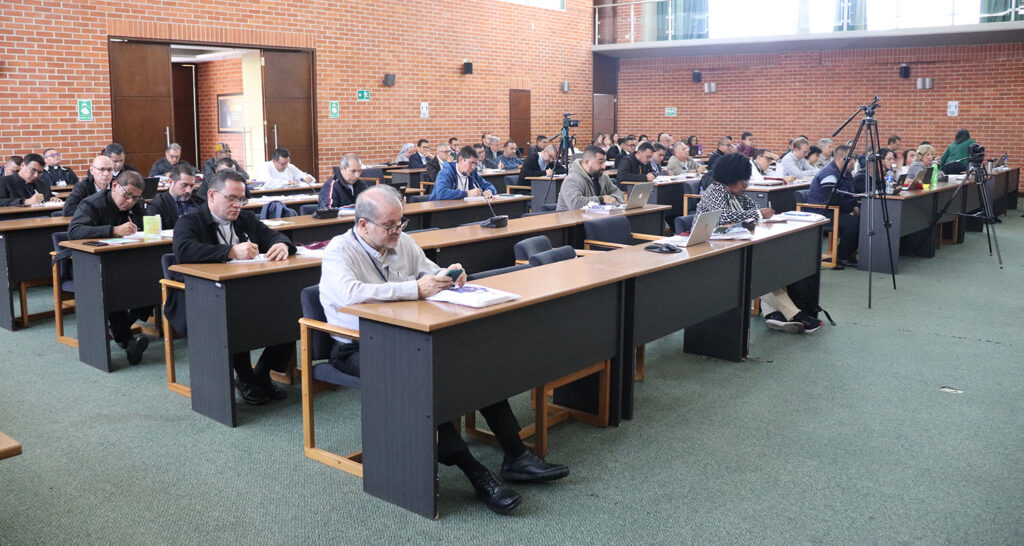The balance of the protection and care of the environment and biodiversity in our country, as well as the challenges that the Interreligious Initiative for Tropical Forests has encountered in this matter in the exercise of its mission, were the topics on which Blanca Lucía Echeverry, national coordinator of IRI-Colombia, reflected during the “National Meeting of Directors of Social Pastoral Care, A Samaritan Church is one that resembles Jesus”, convened by the National Secretariat of Social Pastoral Caritas Colombia and held on April 10 at the facilities of the Episcopal Conference of Colombia, in Bogotá.
“The urgent challenge of caring for our common home involves uniting the entire human family to think about sustainable and integral development,” Pope Francis told us in Laudato Si. Likewise, the current environmental crisis is not only environmental and climatic, but also has human, economic and political characteristics,” said Juan Felipe Martínez, secretary general of the Pan-Amazonian Ecclesial Network, who moderated the panel “Care for our common home”, in which the coordinator of IRI-Colombia participated together with Jimena Lombana, from the Latin American and Caribbean Episcopal Council (CELAM). and Ricardo García, independent researcher.
“In partnership with Repam Colombia and Pastoral Social we have worked on three shared visions, one of them is to raise awareness to reestablish the relationship between human beings and nature,” said Blanca Lucía Echeverry during her speech, in which she presented the work carried out by the Initiative in 14 municipalities of the Colombian Amazon and spoke about the challenges faced by Amazonian tropical forests and their impact on biodiversity. in the well-being of the communities that inhabit them and, in general, of the country. “There are two challenges that must be addressed in terms of protection and care of the environment and biodiversity in Colombia: the realization of social justice and environmental justice,” he concluded.
The mission of Social Pastoral is to contribute to human, sustainable and supportive development, serving society in the formation of communities capable of facing and transforming their social reality, based on the Gospel and the Social Doctrine of the Church. It accompanies the work of 78 ecclesiastical jurisdictions and implements more than 50 projects in these territories, several located in the Amazon region, in the areas of human mobility, care for the environment, peace and reconciliation.



